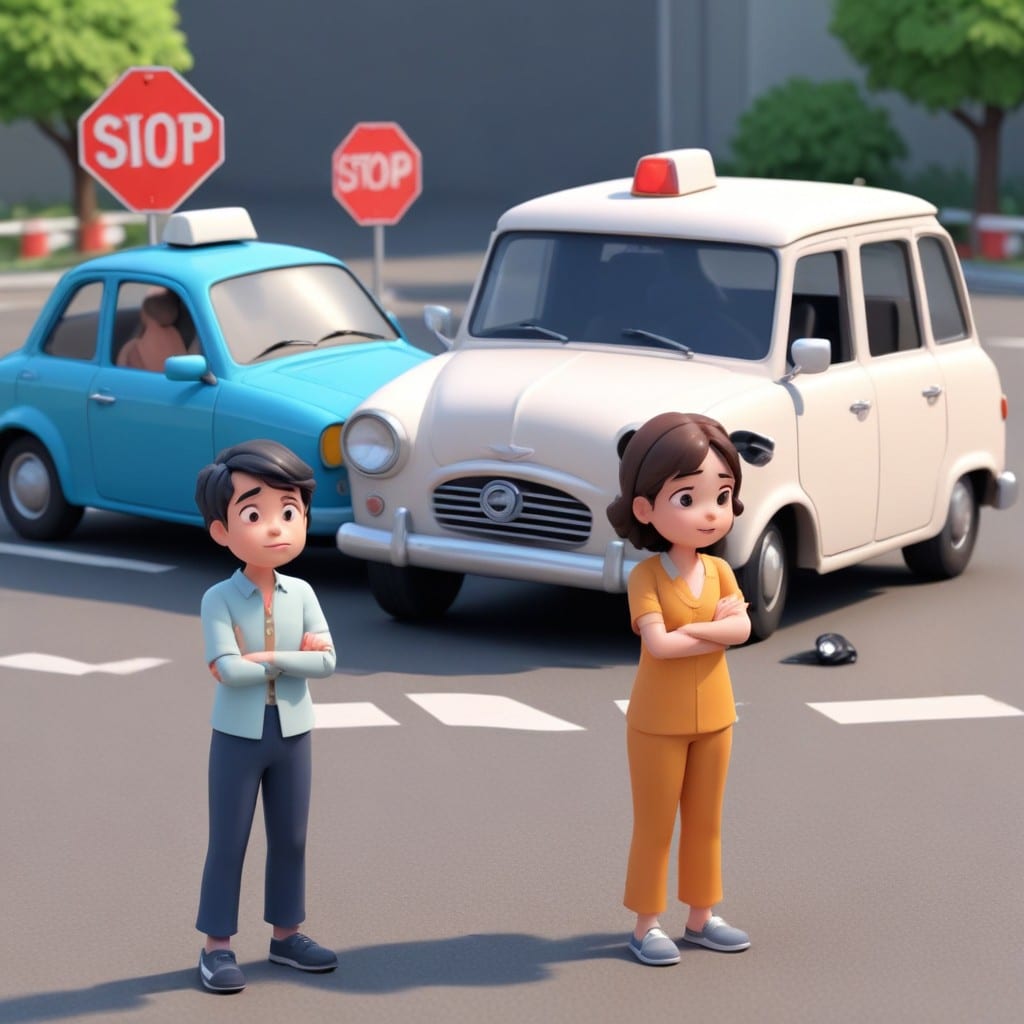Table of Contents
In the U.S., car accident liability is based on a system called “fault” or “comparative negligence.” This means the percentage of blame you share in the accident directly affects how much compensation you receive, if any.
Studies show that nearly half of all people who apologized after a car accident ended up facing more difficulty with their insurance claims.
Why You Must Never Apologize After A Car Accident
While a sincere apology might seem like the natural thing to do, it can actually hurt you later down the line. Here’s why you must never say you’re sorry, especially when you’re the main victim:
It Weakens Your Case
If you’ve been injured and are considering legal action, a seemingly harmless apology can severely weaken your case. Personal injury lawyers will advise you to avoid statements that could be misconstrued as accepting blame.
In a lawsuit, the burden of proof lies with the person accusing you of fault. Don’t give them unnecessary ammunition.
Insurance Companies Love “Sorry”
Insurance companies are in the business of saving money, and any admission of fault, even a verbal one, is music to their ears.
After the accident, the insurance companies will be in touch. They may seem friendly and even check in on you occasionally to see how well you’re recovering, but their goal is to minimize payouts.
If you as much as utter “sorry” at the scene of the accident, an adjuster might use it as leverage to deny your claim or offer a significantly lower settlement.
It Doesn’t Help the Other Driver (and Might Hurt You)
While empathy is a good thing, expressing remorse through an apology won’t magically heal their injuries or fix their car. You can focus on checking on everyone involved for injuries and then exchange information calmly and professionally.
It Can Turn Witnesses Against You
Human memory is fallible, especially in stressful situations like accidents. Studies published in the journal Applied Cognitive Psychology show that subtle cues, like apologies, can easily sway eyewitness accounts.
The bystander who heard you apologize might unintentionally twist their memory of the events, making it seem like you caused the accident. This can have serious consequences. The other driver’s lawyer could use the bystander’s testimony against you and argue that your apology implies fault.
Even if you have a strong case, a biased witness statement can complicate matters for you and potentially weaken your position in a personal injury claim.
You Don’t Have All the Facts Yet and You Might be Hurt Without Your Knowledge
In the heat of the moment, it’s nearly impossible to determine exactly what transpired. Don’t speculate about who caused the accident just yet. Stick to the facts, if you want to show any form of concern, then perhaps you could say: “We’ve been in an accident. Are you alright?”
Also, you’re very likely to have an intense rush of adrenaline in your system immediately after an accident. This surge can mask underlying injuries, leading you to believe you’re okay when you’re not.
When you say “I’m fine” or even apologize to the other party, it can make it harder to seek medical attention later. This certainly jeopardizes any potential personal injury claims you might file in the future.
Conclusion
After an accident, your priority should be your safety and well-being. Focus on checking yourself and others for injuries, calling the police, and exchanging insurance information. When it comes to apologies, save them for a trusted friend or family member, not the person who caused the accident.
Even without saying “sorry,” you can still demonstrate genuine empathy for the other driver’s situation. Focus on neutral statements like “Are you alright?” or “Is anyone injured?” These phrases convey concern without implying fault.
Make sure that you exchange essential information like names, insurance details, and contact numbers. If possible, document the scene with photos or videos on your phone. This creates a record of the accident that’s independent of any apologies or emotional exchanges.


